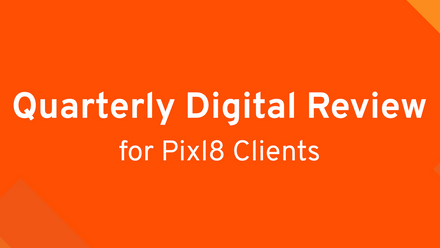How to make your cause shine online
6 top digital tips for charities
Is your challenge attracting new donors, or retaining them? Maybe you struggle to strike the balance between providing services and generating your own income.
For charities in 2021, the majority of interactions will be through digital channels. It's now more important than ever to ask; how can you make your cause shine online?
To kick things off, we would suggest scoring and prioritising your aims so that your digital solutions are aligned to your strategic objectives.
In our experience, taking this one step further and identifying opportunities for "easy actions" (micro conversions) is a great way to strike a balance between what you want people to do, and what they are likely to do.
Need an example? It's easy to sign a petition for change in a cause you believe in, but hard to change your Will to include a donation to the same cause.
We've found that implementing micro conversions can be instrumental in making your predictive modelling more accurate, and increasing the likelihood that website visits will result in the "Ultimate Gift".
Web
Your website is a powerful communications channel. Leveraged to its full potential, it allows you to inspire, spark discussions, and raise support for your cause.
You can use this information to curate "hot topics" defined by the trends evident in your user base, as well as to develop personalised user experiences that resonate and convert.
Part of this involves audience segmentation as you may attract users with eclectic needs. Strategic segmentation will allow you to super-serve their needs, effortlessly.
2. Acknowledge your supporters
As a charity, you should strive for a two-way dialogue in your digital communications. What better way to do this than by acknowledging the impact of your supporters?
Make changes to reflect the social environments your users hail from, as well as their differing digital needs. Aim for high standards of accessibility, in order to support users from all walks of life.
AI chatbots and Instagram influencers are both shiny new opportunities for charity marketers in this rapidly advancing digital age, but don't stray too far from the beaten path if you want measurable results.
Email still has one of the highest ROIs of any marketing strategy, and 99%* of consumers check their emails every single day.
Acquisition is not solely a digital venture - you should be looking for opportunities to encourage signups at events, through face-to-face fundraising recruitment drives, at cash points in your shops, and in print sign-up forms.
Nurturing your email list can involve offering regular content, perhaps in the form of newsletters, offers, or incentives. However, we know from experience that charities can find it challenging to decide which content to include and what to exclude, particularly where stakeholders are involved...
4. Be critical about content
As a charity, conversation needs to appear effortless. The relevance of your email content should be undisputed, and recipients will expect an incentive somewhere within your offering. Time your emails right, and applying all of the above can really pay dividends.
Don't forget to consider the individual attributes of your emails. Think creative, engaging copy in the subject line, and a human warmth to the main message. To ensure recipients are joining the dots, it's vital that you link them to the right landing page - what is easy for them to do, and in-line with your broader goals?
Social
Social media is a great place for campaigning and making your cause come alive. With a 67%** penetration rate in Northern Europe alone, social media offers in-platform fundraising, email list promotion, and the opportunity to increase your 'social proof'.
Though the morality of 'cancel culture' is heavily debated, its polarising effects can work to your advantage. If your charity is seen to be socially generous online by interacting with other causes - in a genuine way, of course - you increase the likelihood of being able to win over those ethically aware social media users.
And of course, these users are not only ethically aware, but often vocally charitable in their own right. By appealing to such users, you expand your pool of influential social media advocates.
6. Aim for a balanced strategy
In the midst of this quest for authenticity, your strategic aims must not fall by the wayside. Set out broad targets based on your organisational goals, and ensure the full team understands how social media should be used to meet them.
Make sure you're looking at measurable successes - "signups generated from Twitter", for example, is a simple metric to track. Your campaigns should be directly influenced by the goals you want to achieve.
Audience base analysis can help you super-serve emotive and shareable content to your follower base, further increasing the reach of your brand on socials.
Ensure you monitor your social successes alongside traditional metrics like website visits. It can be eye opening to discover that growth on Facebook is soaring, whilst website data capture has stagnated.
Let your cause shine online
There's more to succeeding on your charitable mission than optimising your digital output, but it can be a great place to start.
With the right strategy in place, your digital ecosystem can become the catalyst for getting your cause to shine online.
Sources
* 99% of consumers check their emails every day (DMA Insights, 2017)
** Northern Europe has a 67% social media penetration rate (Statista, 2019)











